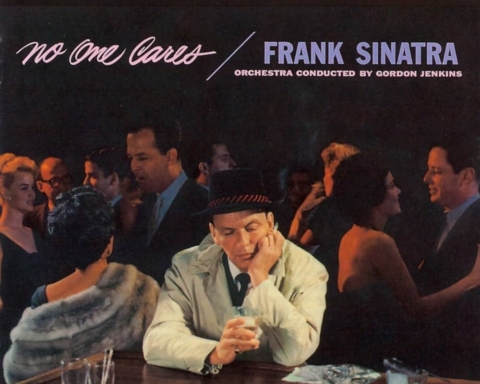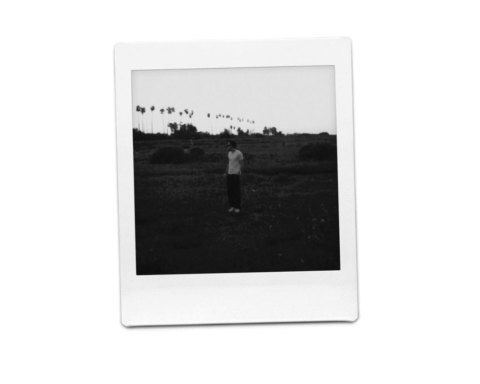Netflix original plays into cliches and stereotypes
Netflix’s “Turn Up Charlie” indulges in society’s DJ stereotypes.
Netflix’s newest British television series, “Turn Up Charlie,” created by and starring Idris Elba, indulges in modern DJ stereotypes instead of refuting them, making the comedy hard to watch for most viewers.
2018’s “Sexiest Man Alive” stars as Charlie, a washed-up DJ who still wants to be successful in the modern music industry despite haven’t made a hit track in over a decade. The most recent DJ-ing gigs he can get is for his friends’ weddings, but it doesn’t give him enough money to pay for his bills.
While DJ-ing at a friend’s wedding, he reunites with his childhood best friend David, played by JJ Feild, which rekindles an old flame and friendship. When Charlie goes to David’s house one afternoon, he meets his superstar DJ wife Sara, played by Piper Perabo, and their 11-year-old daughter Gabby, played by Frankie Hervey, whose disobedience and bad behavior sets an amateurish undertone for the whole show.
Throughout the entire series, Gabby or “Gabs” is pretty much left alone to do whatever she wants with little or no punishment from her parents. The sixth grader curses almost every other sentence, with her most popular line being “b*tch please.” She runs off whenever she’d like (like riding off in a boat with her best friend), and thinks the world revolves around her. Her character’s unlikeable attitude sets off every nanny she has ever had, which ultimately makes Charlie the best candidate to be her “manny” with his current struggling financial situation.
Gabs’ precocious personality drives her to believe that she can do whatever adults are doing. While at her mom’s DJ-ing gig, Gabs runs away from Charlie and is found drinking screwdrivers with Sara’s manager, Astrid. Astrid tells Charlie that there is in fact no alcohol in the drink, but she didn’t tell Gabs that because Gabs only wants to feel older. Astrid’s advice to Charlie is that he should treat Gabs like an adult since she wants to act like one all the time. Some stereotypes have led people to believe that people who are DJs, or in other music-related careers, are bad parents because they don’t pay enough attention to their children while recording music or on tours; the show portrays these stereotypes accurately.
The series buys into this cliché by creating career-driven parents who don’t have enough devoted time for their child. With David’s acting career underway and Sara’s DJ-ing success worldwide, it is hard for the two to step away from their work and focus on quality family time.
It seems as though Gabs only acts out in such an awful behavior because she wants the attention from her parents, but instead, they bring her gifts and nannies. Even though it is easy to understand Gabs’ frustration with her parents and her need for their love and affection, it is hard to feel bad for her. Instead of being grateful for her parents successes and realizing just how lucky she is, she lets her attitude get the best of her and becomes the bratty preteen that no one likes to deal with.
Some audience members may think that Gabs’ personality is funny and refers to the comedy aspect of the show. Others disagree, saying that it is obscene and immature. Who wants to watch a child with a potty mouth complain about her “neglect” for roughly half of each episode?
When the show isn’t presenting Gabs’ preteen dilemmas or parenting problems, it focuses on the rollercoaster that is Charlie’s musical career. After Sara helps make Charlie’s newest track a hit single, Charlie goes to Ibiza to work on music there.
Once in Ibiza, Charlie goes on a rampage where he drinks, does hard drugs and isn’t devoted to his music. This fits into another DJ stereotype that a lot of DJs do drugs and party all day, which resulted from reoccurring, drug-related overdoses by today’s musical society. Instead of seeing the outcome of Charlie’s career that someone would hope, he jeopardizes it by letting the fame get to his head. This aspect, however, does make the series binge-worthy because viewers always wonder what will happen next with Charlie and his work.
Despite the overwhelming sense of giving up the show because of Gabs’ snarky persona and Charlie’s indecisiveness in his career choices, the show does have some underlying lessons. Even though Gabs acts out towards her parents and Charlie, she gives a voice to children who are too afraid to speak up. Gabs says what children may be thinking but will not actually say. Also, Charlie has gone years without making a hit track, but his perseverance and motivation never lets his dreams fall.
Although this show may not be for everyone, it is still worth a try. “Turn Up Charlie” is available for streaming now on Netflix.
By Cammie Dutchess, Staff Writer
jonesdca17@bonaventure.edu






